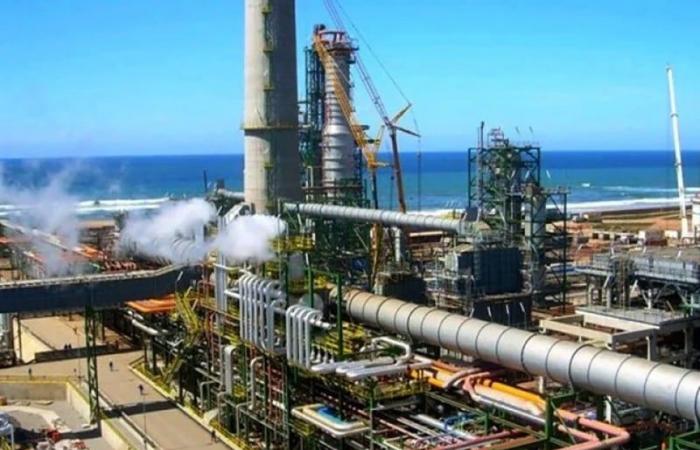The revelation by the Court of Auditors of the non-compliance by companies operating in the hydrocarbon sector with obligations regarding reserve stocks of petroleum products has revived the debate on the relaunch of the activity of the Samir refinery. According to experts in the Moroccan energy sector, this infrastructure has storage capacities of up to around 2 million tonnes of petroleum products.
The findings of the Court of Auditors are alarming. The controllers noted that reserve stocks of various petroleum products remained largely insufficient, below the regulatory threshold of 60 days set by the strategy adopted in 2009. In 2023, stocks of diesel, gasoline and butane gas will not have not exceeded 32, 37 and 31 days respectively.
Faced with this situation, the Court recommended to the ministry concerned to put in place effective mechanisms for managing and controlling reserve stocks. The objective is to mitigate the impacts of price fluctuations on the international market and their repercussions on the national economy.
Houcine Yamani, secretary general of the National Oil and Gas Union, recalled the crucial importance of the Samir refinery: “ The Samir company alone offers around 2 million tonnes of storage capacity for petroleum products “. He clarified that “ the very nature of its operation allows it to have 70 to 80% of this capacity between crude, semi-refined and refined oil. ».
In a press statement, Yamani explained: “ Counting 70 to 80% of the 2 million tonnes of storage capacity at Samir, we are losing nearly 1.6 million tonnes for Morocco with the continued closure of this national site. ”, adding that “ these levels can only be achieved by private companies if they are assured of making a profit on their sales ».
Reacting to the report’s findings, Yamani emphasized that “ “this is not the first time that the Court has warned about the weakness of storage capacities for petroleum products.” He recalled that “the report of the same Court in 2017 had already mentioned the impact of the Samir refinery’s exit from the energy equation on these capacities ».
The trade unionist emphasized the urgency of strict application of the law to force companies in the sector to respect legal requirements. “ The law provides for fines for companies that do not comply with the provisions governing the minimum quantities to be maintained in their reserve stocks “, he recalled. Yamani clarified: “ We have already sent letters to the ministry concerned as well as to previous ministers, given that this problem has persisted for years, without receiving sufficient clarification ».
He also criticized the statements of Minister Benali, accusing the latter of “misleading public opinion on this subject”. According to him, the minister “ mentions storage capacities (that is to say the physical infrastructures allowing petroleum products to be stored) to avoid talking about the essential: the filling rate of these capacities ».
Faced with these findings, Yamani also highlighted the government’s priorities, noting that “ the government is talking today about the transition from the National Electricity Regulatory Authority to the National Energy Regulatory Authority (renewable energies, hydrogen and natural gas), without mentioning oil energy which represents approximately 52% of the Moroccan energy mix ».
He stressed that “these problems have arisen since the abandonment of the Samir refinery”. Returning to the 2009-2030 national strategy, he indicated that “ since its adoption, almost 15 years later, we have only achieved 7 to 8 points of energy independence. Thus, achieving complete independence would require two centuries based on this data. ».
For Yamani, non-compliance with minimum quantities of strategic stocks is “ mainly linked to the greed for profits and the exploitation of fluctuations in international energy markets ».
He concluded by recalling that “ the philosophy behind the regulations aimed at maintaining a minimum legal threshold of reserves is based on the support granted to players in the sector to manage these stocks, set at 150 dirhams per tonne ».
To respond to these challenges, he proposed “ the creation of an agency dedicated to energy, similar to what exists in the telecommunications sector ”, adding that “ the legislation governing this sector dates from the 1970s and is therefore obsolete, given the structural transformations it has undergone, notably the transition from state supervision to privatization ».






